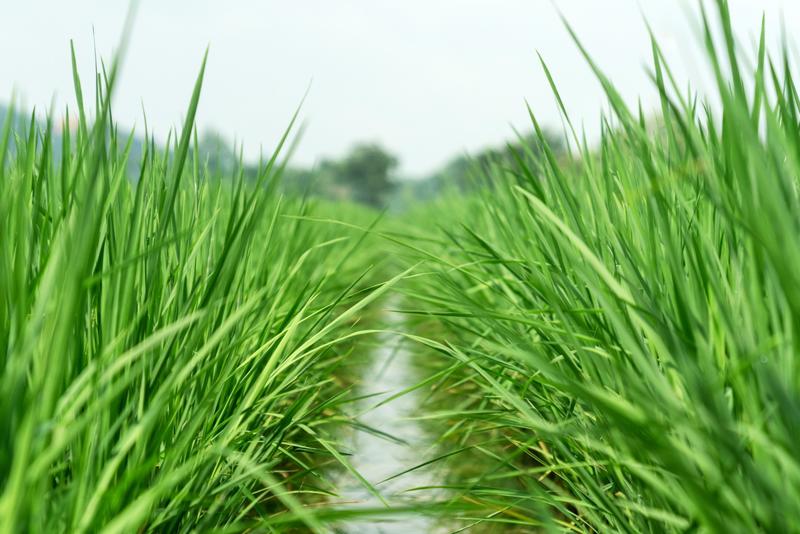 RD79 rice is grown in a pilot field at the Chai Nat Rice Research Center in Khao Tha Phra, Chai Nat, Thailand, on Oct 26, 2020. (NICOLAS AXELROD / BLOOMBERG)
RD79 rice is grown in a pilot field at the Chai Nat Rice Research Center in Khao Tha Phra, Chai Nat, Thailand, on Oct 26, 2020. (NICOLAS AXELROD / BLOOMBERG)
The massive rally in fertilizers is coming for rice, a staple food for half of the world’s population, with farmers in one of the top exporters bracing for exorbitant prices of crop nutrients in the coming planting season.
It’ll be a problem for rice farmers in coming months. Many of them have already harvested last season’s rice and are getting ready for planting so they’ll need fertilizer. A ton of fertilizer is now more expensive than a ton of rice.
Pramote Charoensilp
The cost of fertilizer in Thailand is on track to double from 2020, with prices now at 16,000 baht ($480) per ton compared with an average 10,000 baht last year, according to Pramote Charoensilp, president of the Thai Agriculturist Association, which represents rice farmers in the world’s third-biggest shipper.
READ MORE: Food prices driven up by global worker shortage, Brexit
“It’ll be a problem for rice farmers in coming months. Many of them have already harvested last season’s rice and are getting ready for planting so they’ll need fertilizer,” Pramote said in an interview on Tuesday. “A ton of fertilizer is now more expensive than a ton of rice.”
Rice is a food staple in many countries in Asia and surging fertilizer prices because of a global energy crunch are set to raise costs for many farmers in the region. In some countries, that may lead to governments having to step in to boost farmer subsidies in order to ensure essential supplies.
While floods spared most of Thailand’s rice fields and exporters still have a shipment target of 6 million tons this year, fertilizer costs will become a “big issue” for farmers already struggling with low prices, Pramote said. “The government should intervene.” Prices of Thai white rice 5 percent broken, a benchmark grade, have tumbled about 30 percent from a February high.
ALSO READ: FAO: World food prices hit 10-year peak
Fertilizer costs are having an impact elsewhere in Asia. Vietnam’s plant production department is encouraging rice farmers to cut fertilizer use by as much as half. Meanwhile, in the Philippines, Wilfredo Roldan, administrator of the Fertilizer and Pesticide Authority, expects local rice and corn prices to rise as fertilizer accounts for as much as 70 percent of the production cost.


